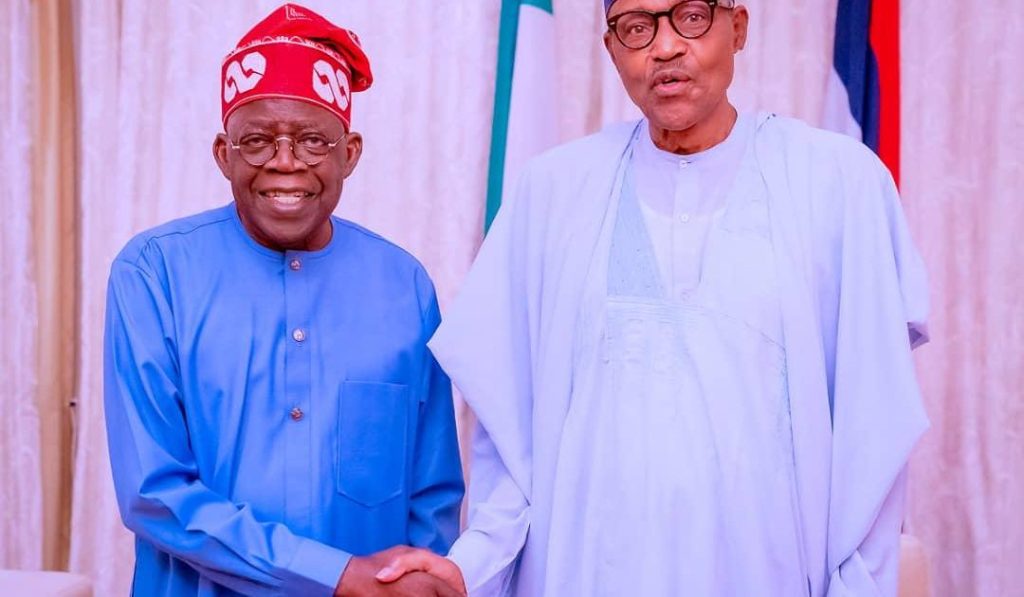The 2015 Nigerian presidential election marked a significant turning point in the country’s political landscape, witnessing the defeat of an incumbent president for the first time in its history. Muhammadu Buhari, a former military ruler, emerged victorious under the banner of the All Progressives Congress (APC), a newly formed coalition of political parties. However, the narrative surrounding Buhari’s victory, particularly the contribution of the various parties that constituted the APC, has become a subject of recent debate. Bayo Onanuga, a prominent voice within the Tinubu administration, has forcefully asserted the pivotal role played by Bola Tinubu and the Action Congress of Nigeria (ACN) in securing Buhari’s 2015 triumph, challenging claims that downplay their contribution. This debate sheds light on the complex interplay of political alliances and regional voting patterns that shaped the outcome of the election.
The controversy revolves around the relative importance of Buhari’s pre-existing support base compared to the votes garnered through the APC merger. Boss Mustapha, the former Secretary to the Government of the Federation, argued that Buhari already commanded a substantial following of over 12 million votes, primarily concentrated in the northern regions of the country. This perspective suggests that the merger with the ACN and other parties, while contributing to the overall vote count, was not the decisive factor in Buhari’s victory. Mustapha’s assertion implies that Buhari’s existing political capital, built over previous presidential campaigns, was sufficient to propel him to the presidency.
Onanuga, however, vehemently disagrees with this assessment. He contends that while Buhari indeed possessed a strong base in the north, this regional support was insufficient to secure a national victory. Onanuga emphasizes that Buhari lacked the necessary “spread” across the country, particularly in the southern states, where his popularity was significantly lower. The ACN, with its stronghold in the southwest, filled this crucial gap, providing Buhari with the “important votes” needed to achieve the constitutionally required spread across a minimum of 24 states.
Onanuga’s argument highlights the strategic importance of political alliances in Nigerian elections. The ACN’s control of six southwestern states offered Buhari a pathway to expand his reach beyond his traditional northern base. These states, although perhaps not contributing millions of votes individually, provided the critical margin needed to secure the presidency. Onanuga portrays the ACN as a “strategic arm” of the alliance, recognizing that Buhari’s northern support alone was insufficient to overcome the incumbent Goodluck Jonathan. The alliance, therefore, was not simply an arithmetic addition of votes but a strategic partnership that leveraged regional strengths to achieve a national victory.
The debate over the 2015 election underscores the enduring significance of regionalism in Nigerian politics. Buhari’s strength in the north, while substantial, reflected a regionally concentrated support base. The ACN’s influence in the southwest provided a complementary bloc of votes, crucial for achieving the required national spread. This dynamic reveals the limitations of regional political dominance in a country with diverse ethnic and religious identities. Winning a presidential election in Nigeria necessitates building bridges across these divides, forging alliances that transcend regional boundaries.
Onanuga’s forceful defense of Tinubu’s role in the 2015 election is not merely a historical recounting but also a politically charged assertion of Tinubu’s influence and strategic acumen. By emphasizing Tinubu’s contribution to Buhari’s victory, Onanuga reinforces the narrative of Tinubu as a kingmaker, a political architect capable of forging winning coalitions. This portrayal serves to solidify Tinubu’s position within the current political landscape, highlighting his past successes as evidence of his ongoing political influence. The debate over the 2015 election, therefore, is not simply a historical discussion but a contemporary political maneuver, underscoring the enduring power dynamics and strategic alliances that continue to shape Nigerian politics.


